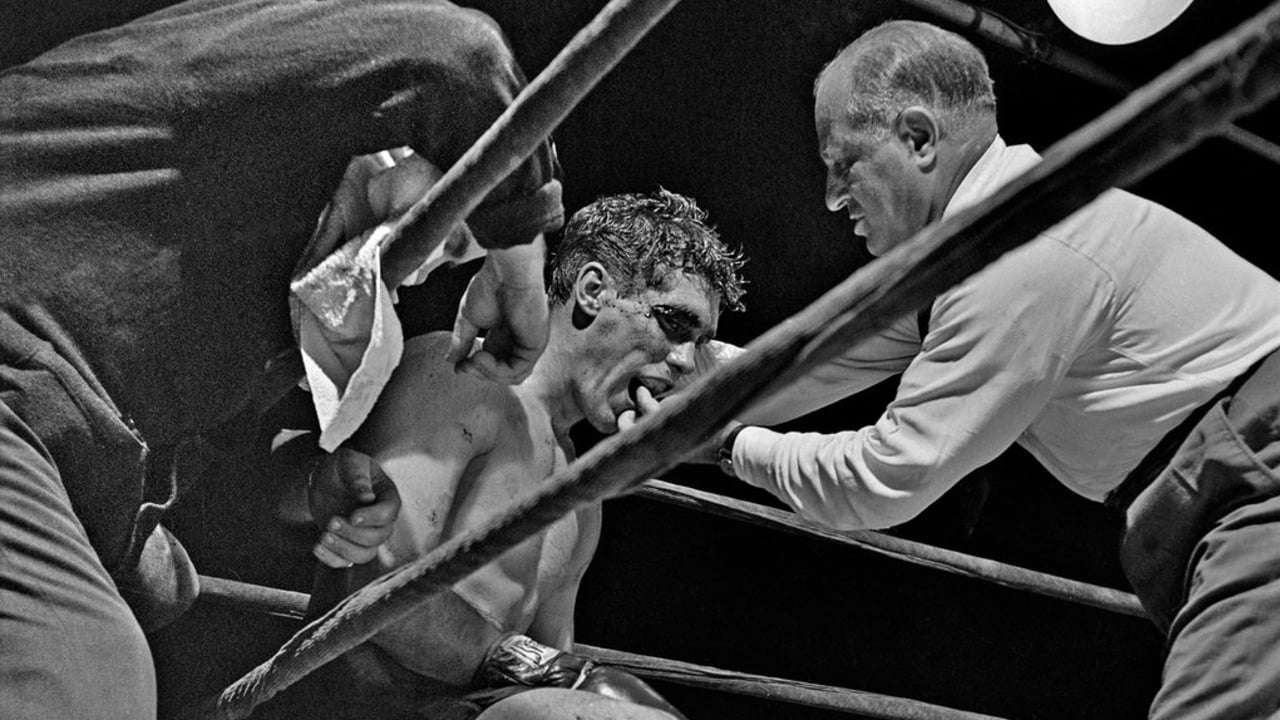

This is one of the most renowned directors of the 20th century finding his style right in front of our eyes. In the early 1950s, Stanley Kubrick shot a handful short documentary films on topics with certain significance for American culture back then. Before moving on to priests and seafarers, he started with a 16-minute documentary on the unusual profession of prizefighters. This is the very first film by the mastermind.Now imagine, you wake up in the morning. And there's Stanley Kubrick in your bedroom pointing a camera at your dozy face. This is exactly what happened to professional prizefighter Walter Cartier (admittedly Kubrick was still a nobody at this point) who is accompanied the whole day of his fight. Kubrick delivers the pictures and renowned television journalist and Emmy Award nominee Douglas Edwards tells the story.I would say that this is only for you if you're really into boxing, especially the early years or a Kubrick completionist. While some parts are good, mostly the actual fight sequences towards the end or the introduction to the topic in the first 4 minutes, some scenes are quite the opposite, like the "last look in the mirror"-scene which could have been found at a MST3000-episode as well.
... View More"Look" magazine photographer and chess-player Stanley Kubrick teamed up with old school chum Alexander Singer to launch their filmmaking careers and that of their star with this short but sweet self-financed boxing documentary, based on the future legendary director's 1949 photo feature "Prizefighter", which after the original buyer went belly-up was sold to RKO for a cool $100 profit.We follow the fan (short for fanatic as no-nonsense narrator Douglas Edwards informs us) to the places where matched pairs of men get up on a canvas covered platform and commit legal assault and lawful battery in an attempt to capture the primitive vicarious visceral thrill of seeing one animal overcome another with the science of hammering each other unconscious with upholstered fists.Irish-American middleweight Walter Cartier is selected at random, with a little help from boxing historian Nat Fleischer, from the 6,000 professional prize fighters who more often than not fail to scrape a living in America to give us insight into the people the fan seldom sees and never considers behind the facts and figures and columns of cold statistics in the record books.Walter Cartier makes an amiable enough presence at the centre of the action to be able to go on to a TV acting career as we see his daily routine transform him into arena man, with able support coming from his twin brother and manager Vincent Cartier and opponent Bobby James as well as a brief appearance from Nat Fleischer and the dulcet tones of news reader Douglas Edwards.The filmmakers make a fine pairing as Kubrick ducks and dives with his hand-held camera getting up close and personal with Cartier both before and during the fight while Singer rises above it all with his camera on a tripod to catch an overview of the action which together with the debut score of another childhood friend Gerald Fried all comes together to make a strong first impression."No one ever told Walter to be a fighter..."
... View MoreThe first short film by Kubrick, it follows a boxer through the day-long wait for an evening fight.I watched this out of interest as I watch the majority of Kubrick's films. However this is the only appeal that I can see for watching this.The short follows the boxer through his routines on the day, the heavy narration talks us through the whole thing. In theory the short is meant to give us an insight in the boxer's thoughts and feelings however it really only shows us what he eats and who he talks to.This is interesting if you are a Kubrick completist but other than that it is of limited appeal.
... View MoreUnlike the earlier Day of the Fight in which one can see inklings of Stanley Kubrick's later achievements, this film is a minor piece of hackwork with little to be said in its favour. Indeed, the most telling feature is that Kubrick, who would later be known as an obsessive perfectionist, here displays indifference. Almost all documentaries are set up to some extent, but here it would have been clear to the slowest of the audience that the episode of the padre flying a mother and sick baby to a hospital was acted out specially for the film. The clumsiness is compounded by the narration, which goes out its way to inform us that the episode was spontaneous and shot as it happened. With a little more inventiveness, Kubrick could have made the sequence at least partially convincing. (This assumes that Kubrick was responsible for the commentary; perhaps he wasn't, and this was an early lesson for him on what producers can do if you don't insist on full control!)
... View More